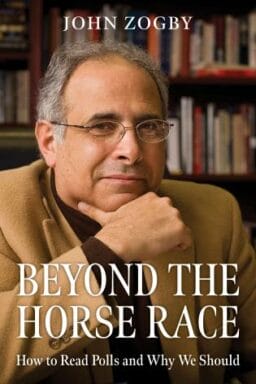Support CCNow’s mission of helping journalists improve and expand their climate coverage. Donate Now.
On Election Day 2012 in the US, Bloomberg Businessweek published one of the great magazine covers in the history of climate journalism. “It’s Global Warming, Stupid” screamed an all-caps headline, playing on Bill Clinton’s 1992 presidential campaign mantra, “It’s the economy, stupid.” Below the headline, a haunting photo showed a darkened, flooded street in Lower Manhattan.
Hurricane Sandy had blasted New York and much of the East Coast just days before American voters chose whether to give President Barack Obama a second term. Hundreds died. Thousands of homes were wrecked. Scores of billions of dollars lost. But except for Businessweek, virtually no one in US media or politics said anything about global warming maybe playing a role.
The lede of Paul Barrett’s cover story impatiently acknowledged that “Yes, yes, it’s unsophisticated to blame any given storm on climate change.” But Barrett quickly pivoted to the “broadening consensus” among scientists that “climate change amps up … basic factors that contribute to big storms,” including warmer oceans. Nevertheless, climate change was absent from 2012 elections coverage, Barrett noted, adding, “After Sandy, that seems insane.”
Election Day 2024 is November 5. Between then and now, the US will face the height of hurricane season. Ocean temperatures are breaking records, which supercharges hurricanes (known internationally as tropical cyclones). So it’s entirely possible another superstorm will strike by Election Day.
Let’s be prepared to explain the climate-hurricane connection to our audiences — and to ask candidates what they plan to do about it. For example, will they commit to the rapid fossil fuels phase-out scientists say is imperative to minimize destruction from future hurricanes? Do they approve of Project 2025’s recommendation to make it harder for states and localities to qualify for federal disaster aid?
Meanwhile, UN Secretary-General António Guterres warned last week in a speech from the South Pacific nation of Tonga that soaring sea temperatures not only worsen storms, they also accelerate sea-level rise.
Roughly 93% of human-caused global warming to date is stored in the oceans. Basic physics teaches that as water heats up, it expands. Thus the oceans are destined to keep swelling for centuries, submerging ever more land, even if humans do halt atmospheric temperature rise by phasing out fossil fuels.
That makes sea-level rise, like hurricanes, an election issue today. Already, rising seas and worsening storms are making home insurance prohibitively expensive or outright unavailable in coastal areas (including Electoral College powerhouses Florida and California). Likewise, the contentious immigration debate will become even more challenging as rising seas compel many of the world’s roughly one billion coastal dwellers to relocate.
“Around 1 meter of future sea level rise is already locked in,” Guterres said. “But its future scale, pace, and impact are not.” He added that “Global leaders must step up” and ensure “a fast and fair phase-out of fossil fuels” and “massively boost climate adaptation investments, to protect people from present and future risks.”
Most of the media missed the climate connection to Hurricane Sandy 12 years ago. Let’s not make the same mistake when another superstorm strikes.
From Us

Climate on the Ballot Summit. From September 17–19, join CCNow and top political and climate journalists for a virtual summit on integrating climate into your elections coverage. RSVP for individual sessions or the whole summit.
- Sign up for CCNow’s weekly Climate on the Ballot newsletter and check out the archive to inspire your reporting.
Looking for local story ideas? Check out CCNow’s newest newsletter Locally Sourced. Every other week, we share story ideas, examples, and resources for covering wildfires, sports, tropical cyclones, and more. Sign up to get it in your inbox.
Noteworthy Stories
Speedy permitting. Following Russia’s invasion of Ukraine, Germany was forced to quickly transition from Russian gas imports and has rapidly adopted renewable energy sources instead. Cutting red tape to speed up permitting, a process that stymies green growth globally, has made the country’s clean energy boom possible. Germany is aiming to source 80% of its electricity from clean energy by 2030. By Marilen Martin and Akshat Rathi for Bloomberg…
- Want to dig deeper into renewable energy projects and the hurdles they face in the US? Check out Heatmap’s newest newsletter, The Fight, by Jael Holzman.
Attributing heat deaths. Even small spikes in temperature increase deaths, according to analyses, but the exact extent is unknown, in part because coroners rarely record heat as a contributing factor. Since 2017, the Centers for Disease Control and Prevention has been pushing for coroners to account for extreme weather’s role in death reporting. By Ariel Wittenberg and Chelsea Harvey for E&E News…
Grist 50 is live! Grist has published its annual list of 50 climate luminaries developing inspiring and innovative ways to stop climate change and adapt to its impacts. It’s a great resource for source ideas and story leads.
Economic toll. Climate change is costing African nations up to 5% of their economic output, stymying growth and development, said the UN Framework Convention on Climate Change’s executive secretary, Simon Stiell. In the run-up to November’s COP29 climate summit, African leaders are weighing strategies to attract investments. By Duncan Miriri for Reuters…
Localizing climate change. In an effective, in-depth 23-minute special, WACH FOX looks at how the global issue of climate change is felt locally in Columbia, S.C. It digs into the heat island effect, how alligator populations are impacted by warmer temperatures, how flood trends are changing, and more. By Clara Faith and Taylor Kanost for WACH FOX…
Key Senate races. Paul Waldman rounds up 10 Senate races whose outcomes could influence climate policy for years to come. In Pennsylvania, for example, incumbent senator Democrat Bob Casey is running against Republican Dave McCormick, who falsely accused his opponent of wanting to ban fracking and successfully made it a central issue in the race. For Heatmap…
- Reporting tip: If you’re based in any of these states, get the candidates on record about what policies they support to stop climate change and help communities adapt to its impacts. Check out the Climate on the Ballot archive for more reporting ideas.
Book of the Week
Beyond the Horse Race: How to Read Polls and Why We Should
By John Zogby, Rowman & Littlefield, August 2024

Often, polls are the tail that wags the dog of elections coverage. The focus on who’s ahead and by how much crowds out coverage of key issues — notably, the climate emergency — and mistakenly implies that polls predict outcomes. Portraying them as something more than snapshots in time can make news outlets shapers, rather than reporters, of events.
Veteran pollster John Zogby is “reluctant to concede” that polls “can impact the outcome of an election,” but he recognizes the problem: “The media reports which candidate is leading and runs with it as gospel…. [while] reducing coverage of the struggling candidate.” That is folly when, in Zogby’s experience, 10–14% of voters — a number that can easily swing an election — do not decide who they’ll vote for until Election Day.
Polls can be invaluable when rigorously conducted and correctly interpreted, as TIME’s Philip Elliott summarizes. Zogby’s deeper dive can help journalists make proper use of polls in our elections coverage and beyond.
Resources & Events
World Resources Institute is hosting a webinar, “Reaching Net Zero: The Power of Aligning NDCs with Long-term Strategies,” September 9.
World Resources Institute is hosting a webinar, “Exploring the Policy Landscape of Carbon Dioxide Removal,” September 12.
Climate Week NYC has published its calendar of in-person, hybrid, and virtual events, running from September 22–29 this year.
Canary Media and The Pew Charitable Trusts will host “Climate Night Live” on September 23 to kick off Climate Week. Special guests will include former secretary of state John Kerry and Jigar Shah of the Department of Energy.
Author Genevieve Guenther will speak with journalists Kendra Pierre-Louis, Bill McKibben, and Amy Westervelt at a Climate Week event, “The Language of Climate Politics in the 2024 Election,” on September 25.
The Walkley Foundation is hosting a webinar, “Refresh your climate coverage!,” and CCNow’s deputy director, Andrew McCormick, will be speaking. September 25, 10–11am EST.
Jobs, Etc.
Jobs. The Baltimore Banner is recruiting an Environment and Climate Reporter (Baltimore, Md.). Univision is hiring a temporary meteorologist (Los Angeles, Calif.). The Washington Post is hiring an Accountability Reporter, Climate & Environment and Weather Reporter (Washington, D.C.). WBNS-TV is seeking a meteorologist (Columbus, Ohio).
Workshops & trainings. The Centre for Investigative Journalism (CIJ) and CONNECTAS are hosting a four-day in-person journalism training in Bogota, Colombia. Apply by September 15. The German taz Panter Foundation is offering a long-term series of workshops for 25 women journalists from the Middle East and North Africa. Apply by September 20.
Support Covering Climate Now
We’re working to help journalists worldwide improve and expand their climate coverage. Meet our staff and learn more about CCNow.
